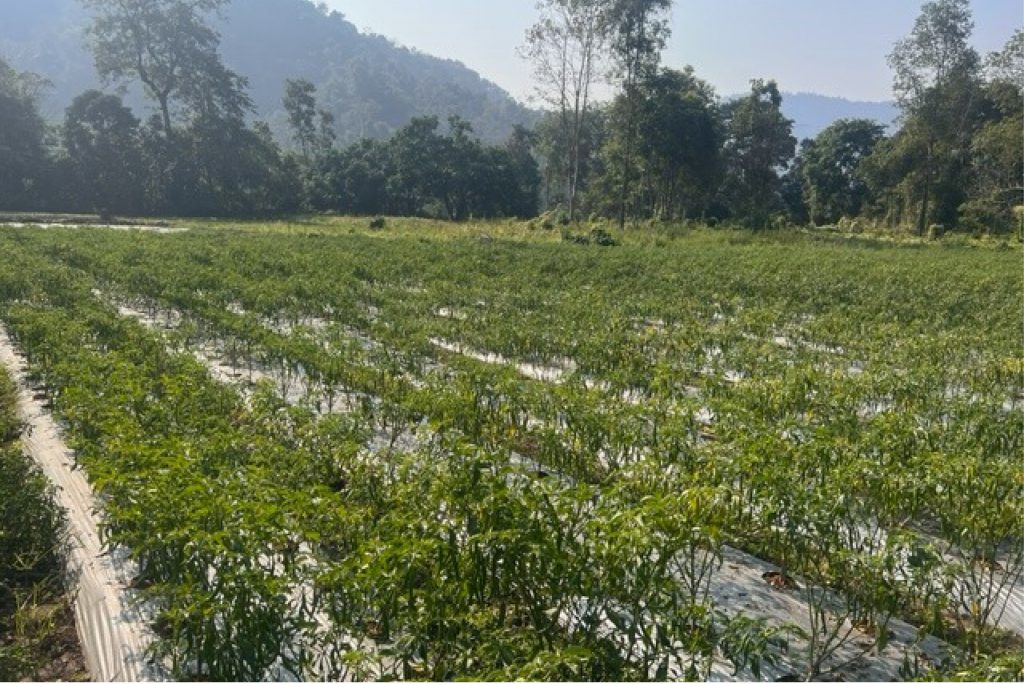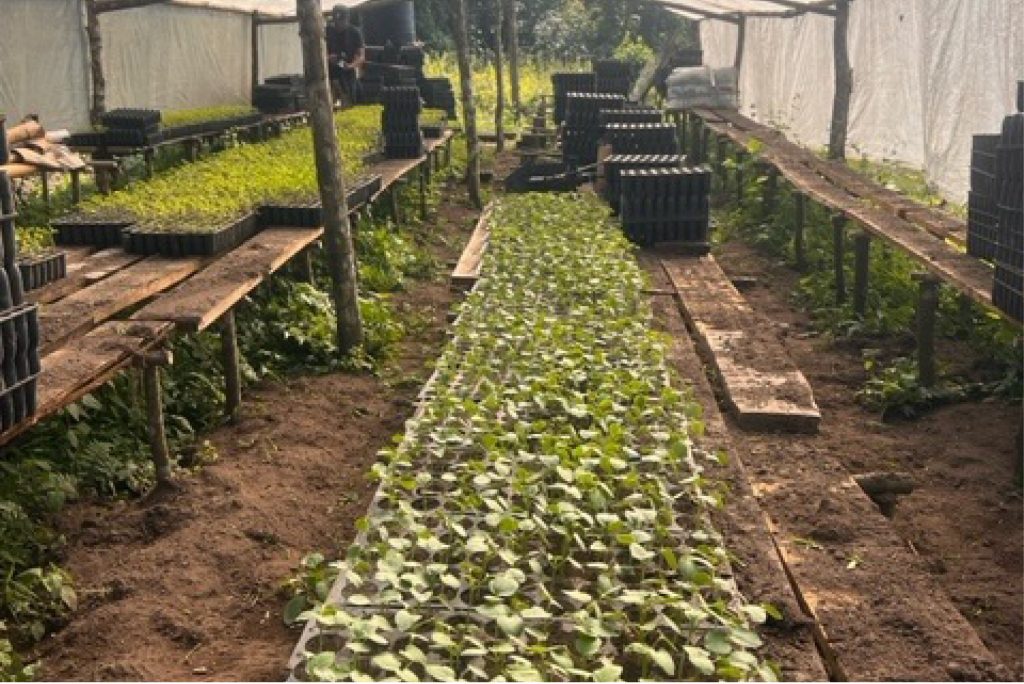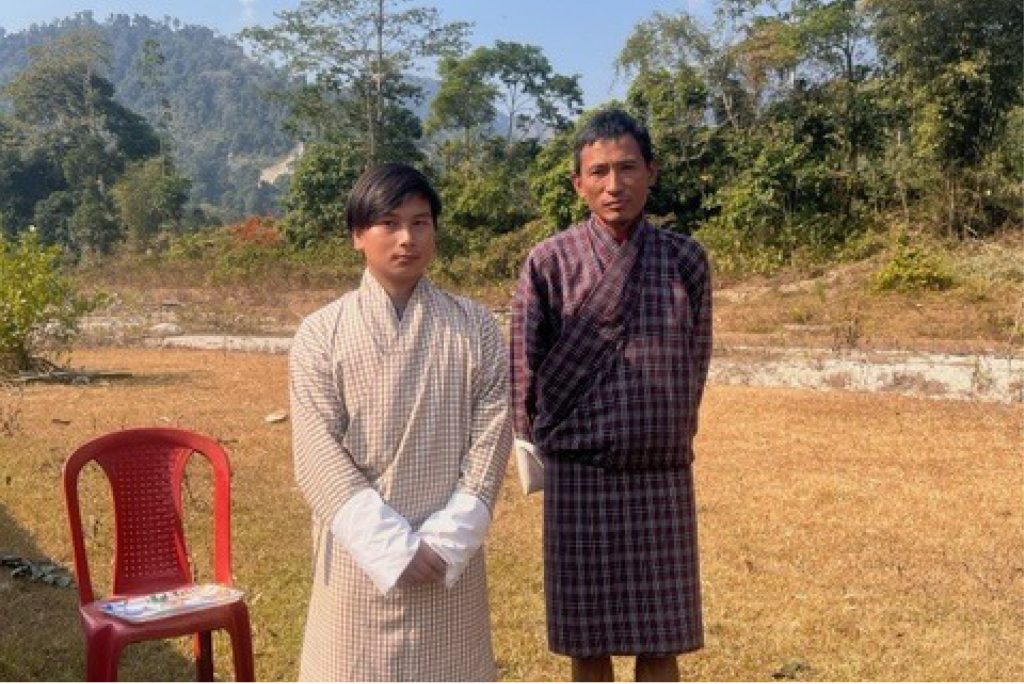A youth–led winter chilli farming group working in Samarchhu village under Tsendagang Gewong in Dagana Dzongkhag, is turning into a model for many aspiring youth farmers.
With RSPN’s support through the mass distribution of chilli seedlings to the farmers of Samarchhu Chiwog under Tsendagang Gewog in Dagana, the farmers have started venturing into growing mass winter chillies. One such inspiring and promising initiative is the youth-led mass chilli production on a commercial scale.
Bimal Subba, a youth in his early twenties decided to stay in the village after completing class ten and has initially worked on his father’s fallow lands, clearing off 1.5 acres of land to start the mass chilli cultivation. A youth group established early this year has three youth members keenly taking up the chilli business.
The group has already begun cultivating chilies and earned over Nu. 55000 from their first harvest. Currently, the youth grew chilies on 5 acres of leased land. The youth group has also planned to upscale their chilli production and venture into growing other varieties of vegetables on the additional 5 acres of the leased land.
And the story is no different for other farmers in the Chiwog. In the past, the farmers grow chilli for self-consumption only but the situation is different this year. Growing Chilli has become a lucrative business now as the area has huge potential for chilli production. Locals in Samarchhu say earlier they used to buy chillies from neighboring Indian towns. It is around two hours drive from Samarchhu to reach some of the neighboring Indian towns.
The Samarchhu Chiwog is identified as one of the most potential areas for chili cultivation and RSPN shall render continued support and encourage the communities and the youth group to take forward the initiatives. Besides, the communities have also shown interest to take up other alternative livelihood programs such as fishery, poultry, piggery, and ecotourism and RSPN will continue to support these initiatives to help in building community and landscape resilience to the impacts of climate change.
Funded by the Federal Ministry for Environment, Nature Conservation and Nuclear Safety (BMU) Germany through International Climate Initiative (IKI), the activity is part of RSPN’s ongoing project “Developing Ecosystem-based Solutions for Managing Biodiversity Landscapes in Bhutan with its objective to establish approaches and tools for protecting and managing the Critically Endangered White-bellied Heron.



Copyright © 2026 RSPN All Rights Reserved